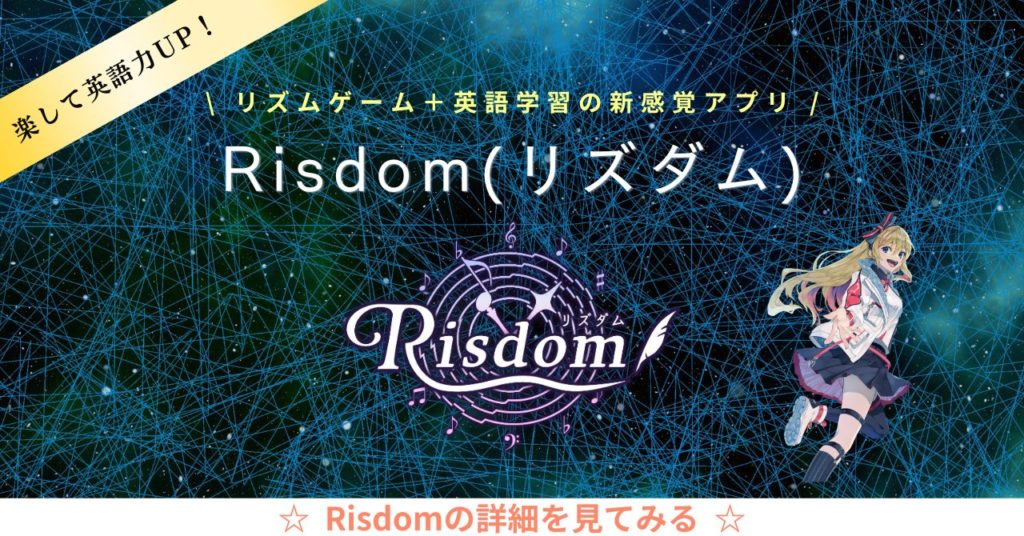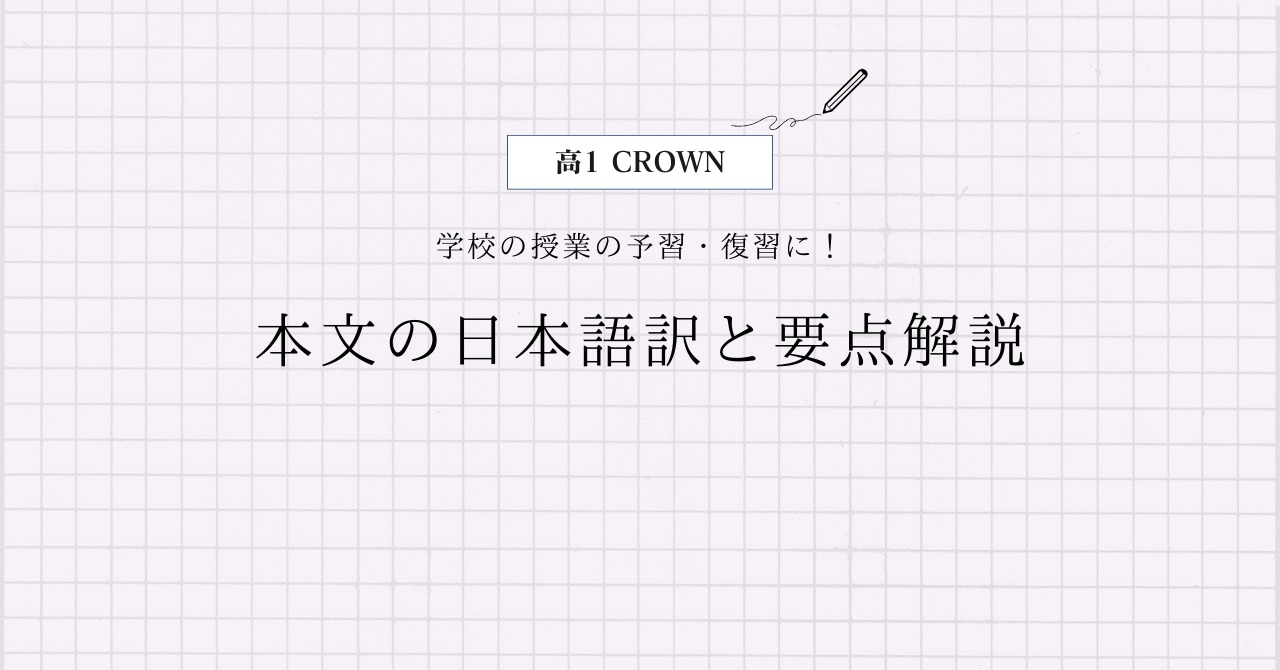三省堂 高1CROWN English Communication1 Lesson2 Section2の本文の日本語訳と重要箇所の解説です。
Section2-1, 2-3, 2-4の解説はこちらからご覧ください。
>高1CROWN English Communication1 Lesson2 Section1 本文和訳
>高1CROWN English Communication1 Lesson2 Section3 本文和訳
>高1CROWN English Communication1 Lesson2 Section4 本文和訳
- CROWN English Communication1 Lesson2 Section2 本文と日本語訳
- CROWN English Communication1 Lesson2 Section2 重要事項の解説
- While in college, KonMari started working as a tidying consultant in Japan.
- In 2014, she went to the U.S. to introduce the “KonMari Method.”
- She has been working hard, and her method is a great success all over the world.
- One of KonMari’s most important principles is this: “Keep things only if they ‘spark joy.”
- Some of her clients have lots of unread books.
- But they don’t know which to keep and which to discard.
- Perhaps they will read them sometime.
- But “sometime” never comes.
- KonMari’s advice is to take each book in your hands, and if it sparks joy, keep it.
- If not, throw it away.
- But don’t forget to say, “Thank you for your good service.”
- She adds:
- “You never read the book, but you still learned something from it. You learned that you didn’t need that book.”
- The same applies to all of your belongings.
- That’s how the process of tidying starts.
- CROWN English Communication1 Lesson2 Section2 まとめ
CROWN English Communication1 Lesson2 Section2 本文と日本語訳
While in college, KonMari started working as a tidying consultant in Japan.
「大学にいる間に,こんまりさんは日本で片づけコンサルタントとして働き始めました。」
In 2014, she went to the U.S. to introduce the “KonMari Method.”
「2014年,彼女は『こんまりメソッド』を紹介するためにアメリカに行きました。」
She has been working hard, and her method is a great success all over the world.
「彼女は一生懸命働き続けているので,彼女のメソッドは世界中で大成功しています。」
One of KonMari’s most important principles is this: “Keep things only if they ‘spark joy.”
「こんまりさんの最も大切な行動指針の1つはこれです。『ときめいたときだけ物を残すようにする。』」
Some of her clients have lots of unread books.
「彼女の顧客の中にはたくさんの読まない本を持っている人もいます。」
But they don’t know which to keep and which to discard.
「しかし彼らはどれを残して,どれを捨てるべきか分かりません。」
Perhaps they will read them sometime.
「多分,彼らはいつかそれらを読むでしょう。」
But “sometime” never comes.
「しかし『いつか』は決して来ることはありません。」
KonMari’s advice is to take each book in your hands, and if it sparks joy, keep it.
「こんまりさんのアドバイスはそれぞれの本を手に取って,そしてもしときめいたら,残すというものです。」
If not, throw it away.
「もしときめかなかったら,それを捨てます。」
But don’t forget to say, “Thank you for your good service.”
「しかし『お世話になりました。ありがとう。』と言うのを忘れないでください。」
She adds:
「彼女はこうも付け加えています。」
“You never read the book, but you still learned something from it. You learned that you didn’t need that book.”
『あなたは一度もその本を読まなかったけど,それでもその本から何かを学んだのです。あなたはその本が必要ないということを学んだのです。』
The same applies to all of your belongings.
「同じことが持ち物すべてに当てはまります。」
That’s how the process of tidying starts.
「そのようにして,片づけのプロセスが始まります。」

CROWN English Communication1 Lesson2 Section2 重要事項の解説
While in college, KonMari started working as a tidying consultant in Japan.
“while”は「~の間」という接続詞で,ここでは“KonMari(She) was”という主語と動詞が省略されています。
“while”を使うときは,主語とbe動詞が省略されることが多いですよ!
“college”は「大学」という名詞で,“working”は「動名詞」になっています。“as”は「~として」という前置詞です。
“tidy”は「を整える,片づける」という動詞で,ここでは「現在分詞」になって直後の“consultant”を修飾していますね。“consultant”は「コンサルタント,相談役」という名詞です。
In 2014, she went to the U.S. to introduce the “KonMari Method.”
“introduce”は「を紹介する,導入する」という動詞で,“to introduce”は「不定詞の副詞的用法」です。
“method”は「メソッド,方式」という名詞になります。
She has been working hard, and her method is a great success all over the world.
この文は「現在完了進行形」になっていますね。
“success”は「成功」という名詞で,“all over the world”は「世界中」という表現です。
One of KonMari’s most important principles is this: “Keep things only if they ‘spark joy.”
“one of 最上級 複数名詞”は「最も~な名詞の中の1つ」という「比較の応用表現」になります。
“principle”は「原理,主義,指針」といった名詞です。
最後の「:」は「コロン」と言い,簡単に言うと「つまり」という具合に直前の文章を補足します。コロンを使うときは,コロンの前は必ず文にしないといけない点に注意してください。
“keep”は「を保つ,を持ち続ける,を残す」といった動詞,“thing”は「もの,こと」という名詞になります。ここでは「命令文」になっていますね。
“only if~”は「~な場合だけ」といった接続詞です。
“they”は“things”を指していて,“spark joy”は「ときめく」という表現になります。
Some of her clients have lots of unread books.
“some of~”は「~の中には…な人もいる」くらいで訳しましょう。
“client”は「顧客」という名詞で,“unread”は「読まない」という形容詞です。
“lots of~”は“a lot of~”と同じ「たくさんの」という意味ですね。
But they don’t know which to keep and which to discard.
“they”は“Some of her clients”を指しています。
“which to 動詞の原形”は「疑問詞+不定詞」の形で,「どちらを~すべきか」という意味になります。
“discard”は「を捨てる」という動詞です。
Perhaps they will read them sometime.
“perhaps”は「多分,おそらく」という副詞ですね。
“they”は“Some of her clients”を,“them”は“unread books”を指しています。
“sometime”は「いつか」という副詞です。
But “sometime” never comes.
“never”は「決して~ない,一度も~ない」という副詞です。
KonMari’s advice is to take each book in your hands, and if it sparks joy, keep it.
名詞に‘sを付けると「~の」という所有を表します。
直前の名詞が複数形のときは” teachers‘ “のようにアポストロフィーだけを最後に付けます。
“advice”は「助言,アドバイス」という名詞ですね。
“take”はここでは「を取る」という意味で,“to take”は「不定詞の名詞的用法」になっています。
“each”は「それぞれの」という形容詞で,後ろには名詞の単数形が付き,全体でも単数扱いとなります。
“it”は“each book”を指していますね。
If not, throw it away.
“If not”の部分は,“If it doesn’t spark joy”の省略された形になっています。
“throw A away”は「Aを捨てる」という重要表現です。
“it”は“each book”を指していますね。
But don’t forget to say, “Thank you for your good service.”
この文は「否定の命令文」になっています。
“service”は「サービス,奉仕,世話」という名詞ですが,ここでは「お世話になりました。」と意訳しています。
She adds:
“add”は「を追加する」という動詞になります。
“You never read the book, but you still learned something from it. You learned that you didn’t need that book.”
“still”は「いまだに,まだ,それでも」という副詞です。
“learn”は「を学習する,習得する」,“need”は「を必要とする」という動詞になります。
“something”は「何か」という代名詞で,“it”は“the book”を指しています。
“learned”の後ろの“that”は「接続詞」ですね。
The same applies to all of your belongings.
“same”は「同じもの」という名詞で,“the same”で直前に出てきた名詞と同じものを指します。
“apply to~”は「~に当てはまる」という意味で,“belongings”は「持ち物,所有物」という名詞です。ふつう複数形で使います。
“of”は前置詞で,”A of B”の形で「BのA」というように後ろから前に訳します。
That’s how the process of tidying starts.
“that’s how”は「そのようにして」という「関係副詞how」を使った重要表現です。
“process”は「プロセス,過程」という名詞ですね。
CROWN English Communication1 Lesson2 Section2 まとめ
以上がCROWN English Communication1 Lesson2 Section2の日本語訳となります。
「不定詞」や「関係詞」の使い方をしっかり確認しておきましょう!
>高1CROWN English Communication1 Lesson2 Section1 本文和訳
>高1CROWN English Communication1 Lesson2 Section3 本文和訳
>高1CROWN English Communication1 Lesson2 Section4 本文和訳
何か分からない点や他に解説してほしい点があれば,お気軽にコメントしてください!



コメント